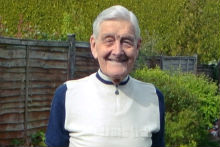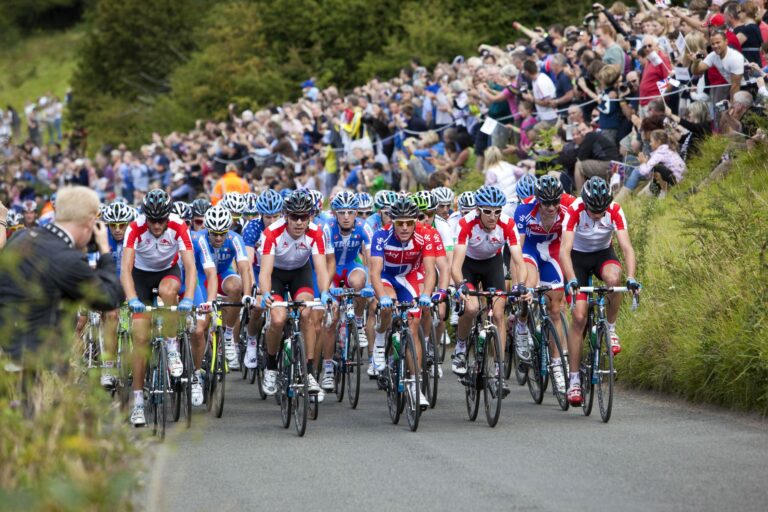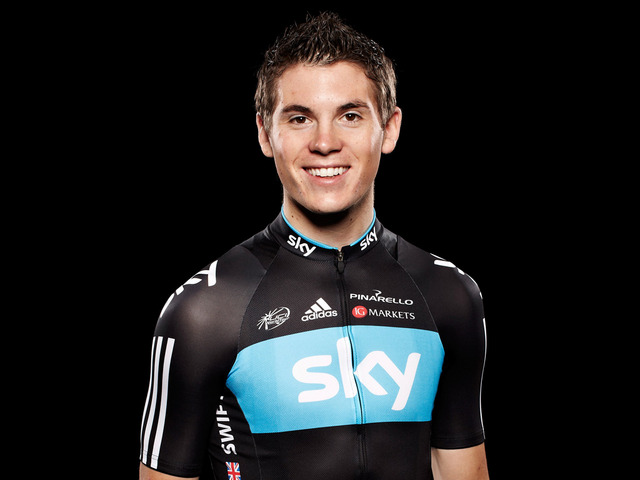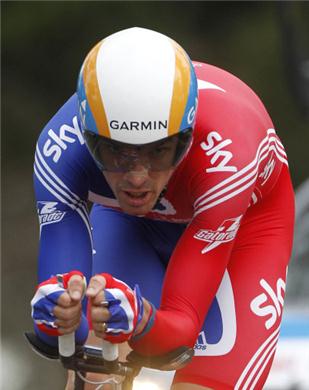Just 100 days remain between today and the start of the 30th Olympiad: the London Games.
Great Britain’s cyclists, having delivered unprecedented levels of success four years ago in Beijing, will take centre stage in London, carrying the bulk of the nation’s hopes for medal success. If performances at the UCI Track World Championships in Melbourne earlier this month are an indication, they are ready for the challenge.
But medals, if they are to come, will be hard earned. No nation will hand victory to Team GB willingly. Among the strongest squads will be Australia, who topped the medal table on home soil at the World Championships, equaling Great Britain’s medal tally for gold and bronze medals, and collecting two more silvers. The margins could hardly be finer.
Kaarle McCulloch played her part in winning one of those vital silver medals, partnering multiple world champion Anna Meares to second place in the women’s team sprint, beaten only by the world record setting pace of the German pairing of Kristina Vogel and Miriam Welte. “I think there is a bit of disappointment and a lot of strength that came from our performance in Melbourne. The rest of the world knows that to beat us they need to be on world record pace and it will be the same in London,” she says.
But far from being daunted, McCulloch believes the loss of pressure that comes with being favourites (“Germany now have a target on their backs”) could work to the Australian pair’s advantage. “While I prefer to be the hunted, I also love the thrill of the chase, and I am going to be chasing hard knowing what I can and will do,” she says.
She is under no illusions about the scale of the task that awaits her in London, where she will focus solely on the women’s team sprint: “It will take a world record to win the Olympic title.”
McCulloch admits to being intimidated by the London crowd at the closing round of the UCI Track World Cup in February, where Great Britain’s Victoria Pendleton and Jess Varnish lowered the world record to 32.754, beating McCulloch and Meares by nearly two-tenths of a second. A fan of the London Velodrome’s boards (“I like tracks with wide bends and London certainly has nice wide ones!”) she confesses to being surprised by the ferocity of the London crowd, but believes she is stronger for the experience, particularly if she rides in a Great Britain vs. Australia final. “I have been working with my sport psychologist on using the crowd to my advantage, so when I hear them roar now I hear them roaring for me – so please London, roar loudly!” she jokes.
The resumption of an Anglo-Australian rivalry is of little concern to McCulloch, who includes Germany and China among a quartet capable of lifting the Olympic title. Her focus is on delivering her best performance with Meares: “if we can do that then we don’t have to worry about anyone else.”
Both riders had a successful World Championships: McCulloch recording personal bests in each timed event she contested; the older and more experienced Meares picking up gold in the keirin and 500m TT, and coming back to win bronze in the B final of the individual sprint after tangling with Pendleton in the semi-final. McCulloch describes the former Olympic champion, and the rider with whom she won her “defining” team sprint world championship in 2010, as “a great training partner, teammate, and rival.”
“We share a special relationship whereby we are both very driven to succeed and so we can team up and put that together but we can also always have great races against each other as individuals knowing that we both want to win as much as each other,” says Mculloch. “I have never had a bad race against Anna, she has always brought the best out in me and so if I do cross the line in second place I always know I have done what I could to beat her.”
McCulloch says the pair aimed to be ten per cent from their peak in Melbourne and will follow a tried and tested regime with a few “tricks” between now and July. They will embark on a six-week phase to rebuild strength after the worlds, followed by a four-week power development phase, before a final block of speed training in the last few weeks leading to the Games. She is open in her description of the importance of the Games to her as an athlete and a person.
“Just to now officially say that I am going to the Olympics is a dream come true for me. I feel very special to be among a crowd of few people who can say that,” she says. “An Olympic title would be the icing on the cake for me.” But she is under no illusion about the work required for final preparations, and the scale of the performance required for victory in London. “We will have to be the greatest we have ever been to win that title and that’s what makes the Olympics special, because the best will win.”





